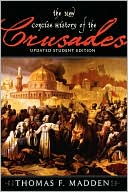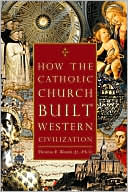Previous entries can be found here. My apologies for the late posting. I'll try to do better.
As a reminder we are focusing on the following questions though we may only allude to answers to them along the way until we complete the list:
- who are they?
- where are they from?
- what place they have-
in the Biblical text,
in the story of salvation
and in relation to Jesus specifically.
Today we look at the big three, Abraham, Isaac and Jacob.
Abraham-
"the father of the believers of the Old Covenant" (Orthodox Study Bible)
This was the name of the son of Terah, named (Gen. 11:27) before his older brothersNahor and Haran, because he was the heir of the promises of God. He was originally named, Abram. His wife Sarai would later become Sarah.
For many years, Abram lived among his relatives in his native country of Chaldea in present day Iraq (Genesis 11:31). Then, with his father, family and household, he leftthe city of Ur, where he lived. He traveled 300 miles north to Haran and lived there for fifteen years. The cause of his migration was a call from God (Acts 7:2-4).
Abram received a second and more definite call after his father's death. This call was accompanied by a promise from God (Gen. 12:1,2). As a result, he left at the age of 75 (Gen. 12:4), taking his nephewLot with him, not knowing where he was going (Hebrews 11:8). He trusted God implicitly.
After moving about for a couple of years he returned to his home at Mamre. Sarai was impatient for God's promises to come about (she was now seventy-five years old) so she persuaded Abram to take Hagar, her Egyptian maid, as a concubine, intending any resulting children would be counted as her own.
Ishmael was born and regarded as the heir of these promises (Gen. 16). When Ishmael was thirteen years old, God again revealed yet more explicitly and fully his gracious purpose; and in token of the sure fulfillment of that purpose, the patriarch's name was now changed from Abram to Abraham (Gen. 17:4,5), and the rite of circumcision was instituted as a sign of the covenant.
It was then affirmed that the heir to these covenant promises would be the sonof Sarai, though she was now ninety years old. God directed that his name should be Isaac. At the same time, in commemoration of the promises, Sarai's name was changed to Sarah.
Abraham was later commanded to offer up Isaac, the heir of all the promises, as a sacrifice on one of the mountains of Moriah. His faith stood the test (Hebrews 11:17-19). He proceeded in a spirit of unhesitating obedience to carry out the command; and when about to kill his son, whom he had laid on the altar, his uplifted hand was stopped by an angel of God. A ram (male goat) was revealed, entangled in nearby bushes. This was offered instead of Isaac.
This place was therefore named Jehovah-jireh, i.e., "The Lord will provide."
The promises made to Abraham were again confirmed (and this was the last recorded word of God to the patriarch). He descended the mountain with his son, and returned to his home at Beer-sheba (Gen. 22:19), where he lived for some years. (more here and here) (notes and thoughts)
Isaac
The son of Abraham and Sara. The incidents of his life are told in Genesis 15-35. According to Genesis 17:17; 18:12; 21:6, his name means: "he laughs". Proclaimed sole legal ancestor of the chosen people. His early years were spent in Bersabee, whence he was taken by his father to Mount Moria to be offered up in sacrifice, and whither he returned after his life had been miraculously spared (21:33; 22:19).He married Rebecca, and they were married in "the south country", where Isaac then lived, and continued to live after he had buried Abraham. Many years elapsed before Isaac's longing entreaty toGod for children was actually heard. Of the twins to whom she then gave birth, Esau was beloved by Isaac, while Jacob was Rebecca's favourite (25:21-28).
Because of afamine (Gen. 26:1), Isaac went to Gerar, where he lied about his relation to Rebekah, imitating the conduct of his father in Egypt (12:12-20) and in Gerar (20:2).
During the last years of Isaac's career, there occurred the well-known incident of his conferring upon Jacob the Divine blessing, which he had always intended for Esau (27), followed by Isaac's concern to protect Jacob from his brother's resentment and to secure for him a wife from his mother's kindred in Mesopotamia (28:1-5).
The New Testament contains few, but significant references to Isaac (cf. Matthew 8:11; Luke 12:28; 20:37; Romans 9:7; Galatians 4:28; Hebrews 11:17 sqq.; James 2:21).
more here and here (notes and thoughts)
Jacob
The son of Isaac andRebecca, third great patriarch of the chosen people, and the immediate ancestor of the twelve tribes of Israel. The incidents of his life are given in parts of Genesis 25:21-50:13. His early years were marked by various efforts to get the birthright from his brother Esau. His struggle for it began before he was born (xxv, 22-5). Later, he took advantage of Esau's thoughtlessness and despair to buy it from him for a pottage of lentils (xxv, 29-33). In virtue of this purchase, and through a ruse, he finally got it by securing the blessing which Isaac intended for Esau (xxvii, 1-37), Then it was that, to escapehis brother's avenging wrath, and apparently also to obtain a wife from his parents' stock, he fled to Haran where he met Rachael who would become his wife. Tricked by his maternal uncle, Laban, who lived in Haran, Jacob marries Leah before he eventually marries Rachel. Twice (going and coming) he stopped at Bethel where he had a vision of the angels of God ascending and descending on the ladder whose top reached unto heaven (28:10, 19); and "where God talked with him" (35:1-15), and there he "built an altar, and called the place El-beth-el" (q.v.). This second occasion of God's speaking with Jacob at Bethel, is referenced in Hosea (12:4,5).
More here and here and notes and thoughts


No comments:
Post a Comment